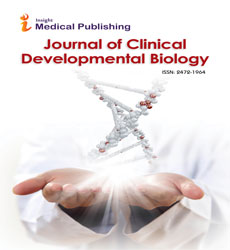Abstract
Structural insights in the binding mode of neuropeptide Y at G protein-coupled receptors and consequences for drug development
Peptides hormones assume a significant job in the guideline of complex exercises in the body. A considerable lot of them transmit their movement through G-Protein Coupled Receptors (GPCR), which are among the most encouraging medication targets now-a-days. Likewise, explaining the coupling method of ligands is basic. While a few little particle frameworks have been all around portrayed, ligand official of enormous and adaptable peptides is still all the more testing. Notwithstanding ligand authoritative and receptor actuation, aberrant components have been appeared to assume a job for drugs tending to GPCRs. This incorporates desensitization, disguise and in like manner their expected use as medication transports, for example in tumor focusing on. As needs be, notwithstanding ligand official, disguise must be tended to and to be examined, including arrestin enrollment. As needs be, ligand authoritative, auxiliary elements and disguise must be tended to and to be concentrated to address G protein coupled receptors for medicate improvement. The neuropeptide Y/pancreatic polypeptide family contains 36 amino corrosive peptides that quandary in human to four unique purported Y-receptors. By a mix of X-beam investigation, NMR, sub-atomic demonstrating and cross connecting joined with mass spectrometry, we could as of late recognize the unmistakable restricting methods of NPY to the Y1-and the Y2 receptors. We could additionally exhibit that concoction adjustment of the ligand, including fluorescence marking, lipidization and PEGylation altogether changes the dealing of the ligand. By naming of the receptor with a novel format helped ligation technique, we can follow ligand/receptor buildings in living cells. Besides, we recognized an alternate method of arrestin authoritative and enrollment. Neuropeptide Y1 and Y2 receptors have been appeared to assume a significant job in various tumors. In bosom disease we showed that human Y1 receptors are addressable by peptide conjugates utilizing 99mTc or 18F PET-tracers. We presently planned Y1 receptor specific peptides connected to various toxophors. Moreover, we portrayed the system of direct and peptide-interceded take-up of tubulysin-related poisons. In the field of tumor treatment, peptide-tranquilize conjugates are now all around acknowledged. Be that as it may, the idea of receptor-intervened disguise and resulting tissue explicit intracellular application isn't restricted to the specific tending to of tumors. This may open up another field of focused treatment by medium sized medications.
Author(s):
Annette G Beck-Sickinger
Abstract | PDF
Share this

Google scholar citation report
Citations : 22
Journal of Clinical Developmental Biology received 22 citations as per google scholar report
Abstracted/Indexed in
- Google Scholar
- Directory of Research Journal Indexing (DRJI)
- WorldCat
- Publons
- Secret Search Engine Labs
Open Access Journals
- Aquaculture & Veterinary Science
- Chemistry & Chemical Sciences
- Clinical Sciences
- Engineering
- General Science
- Genetics & Molecular Biology
- Health Care & Nursing
- Immunology & Microbiology
- Materials Science
- Mathematics & Physics
- Medical Sciences
- Neurology & Psychiatry
- Oncology & Cancer Science
- Pharmaceutical Sciences
